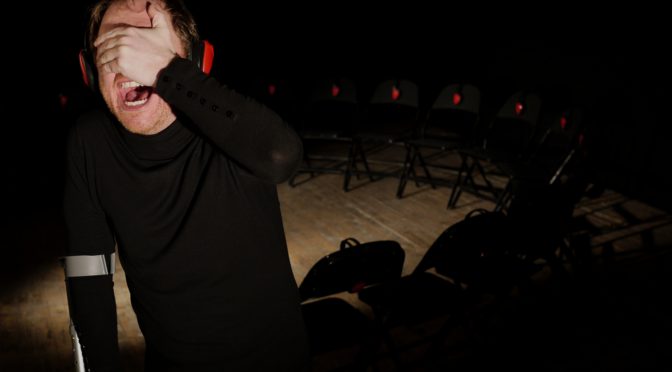“The most important thing is the darkness”, our host for the evening tells us, as the audience files into the atmospheric Battersea Arts Centre for theatre with a difference. Ring, conceived and directed by David Rosenberg and produced by Fuel, is performed in total darkness, using headphones to create a sound piece that’s unnerving and unmissable.
The darkness is unnatural, a pitch black not normally experienced, set-up theatrically by Simon Kane, playing Michael, who leads an unusual therapy session with the flair of a magician. Kane’s showmanship establishes the scene marvellously. When the lights go down expectations are up and we are in the midst of the drama: part of a group using the dark as cover to explore issues of blame and frightening events. What our role is, and how we work out what’s going on, is the investigation at the centre of the show and it creates an engaging experience that leaves you exhausted despite its brief 50-minute duration.
Make no mistake; this is not just a variation on a radio play. The idea of the group, people coming together to share an experience, is at the heart of the show and exploring this makes it work as theatre. In these remarkable conditions, the story Ring tries to shape struggles to hold its own, even though writer Glen Neath raises a number of questions and issues, tries to inject some humour, and manages to toy with expectations intelligently.
The science behind the headsets we all wear is fascinating – binaural recording is apparently the key to the uncanny effects – and the technical achievements of Ben and Max Ringham, who designed the sound and music, tremendous. But the show really works because it uses our imaginations. So limitless are the possibilities, the story behind Ring doesn’t quite satisfy: composed of fragmentary scenes and conversations the scenarios are a little too predictable, but the technique is so novel and exciting it has to be heard to be believed.
Until 28 March 2013
Photo by Susanne Dietz
Written 14 March 2013 for The London Magazine

